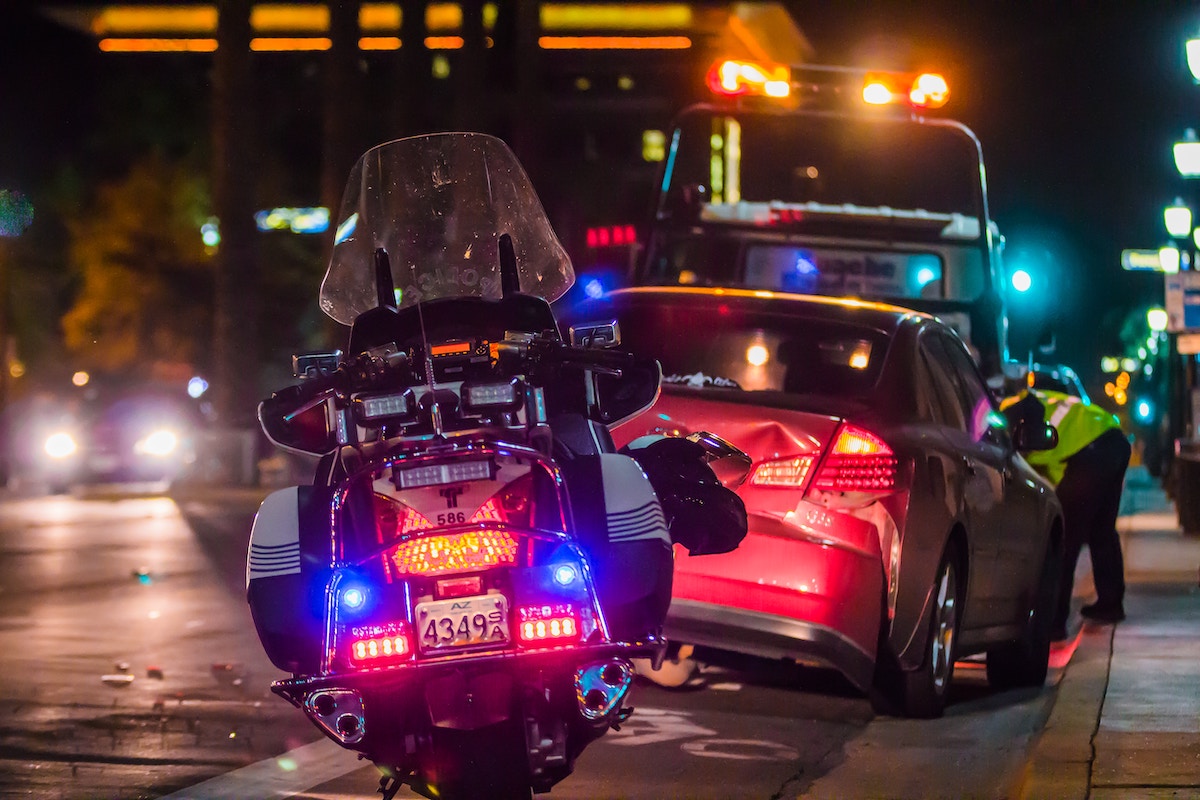How to Survive a Car Crash: An Essential Guide

Car crashes are frightening, and the risk of serious injury or death is ever-present. Despite advances in technology, millions of people still suffer from car accidents each year. Knowing how to respond correctly during a crash could mean the difference between life and death--making understanding the basics of what to do when you've been involved in an accident essential knowledge for everyone on the road. In this blog post, we'll cover everything you need to know about surviving a car crash—from strategies on preventing them in the first place, to important precautions that can minimize your chance of dying if an accident does occur. With these tips in hand, you’ll be better prepared when disaster strikes so that you have a fighting chance at coming out alive!
Understand the anatomy of a car crash and the most common causes
Car crashes are a leading cause of injury and death globally. To better understand this phenomenon, we need to delve into the anatomy of a car crash. Crashes generally involve two or more vehicles colliding with one another or with other objects. The impact can cause serious damage to the vehicles involved, as well as significant injuries to those inside. While there are a variety of factors that can cause a crash, some of the most common include distracted driving, speeding, and driving under the influence of drugs or alcohol. By understanding these causes and the anatomy of a crash, we can gain more information necessary while contacting car accident lawyers who should help us fight for our rights. Not just that, but also to work towards preventing them and keeping ourselves and others safe on the road.
Buckle up - Always wear a seat belt when driving and make sure everyone in the car is buckled up as well
Wearing a seat belt might seem like a minor action, but it can save your life in case of an accident. It is not just about your safety but also the well-being of those traveling with you. Even if you are going for a short drive, make sure that everyone is wearing a seat belt before you hit the road. Remember that accidents can happen anywhere, anytime, and to anyone. A seat belt is your first line of defense that can protect you from serious injuries or even death. So, make it a habit to buckle up and encourage others to do the same.
Stay calm - Panic can make a bad situation worse, so try to remain as composed as possible during an accident
When accidents happen, it's natural for our emotions to run high. However, panicking in a stressful situation can only make things worse. It's important to stay calm and composed, as this can give you a clearer mind to assess the situation and take any necessary actions. Panicking can cloud your judgment and prevent you from thinking logically, which can lead to harmful consequences. So the next time you find yourself in an accident, take a deep breath and do your best to stay calm. Remember, a clear head can make all the difference.
Assess the situation - Before getting out of the car, assess the area around you to make sure it is safe
When it comes to traveling by car, safety should always be a top priority. That's why it's important to assess the situation before getting out of your vehicle. Take a moment to look around and make sure the area is free of any potential hazards. Are there any suspicious individuals lurking nearby? Is the surrounding environment well-lit? Are there any obstacles or dangers that could put you at risk? By simply taking a few seconds to evaluate the situation, you can prevent potential accidents and ensure that you and your passengers stay safe while on the road.

Call 911 - If anyone has been injured or there has been property damage, call 911 right away
Whenever there is any sort of injury or property damage, it is of utmost importance to call 911 right away. This simple step can make all the difference in ensuring that help arrives as quickly as possible. The 911 operators are trained to handle emergencies and can assist in dispatching the necessary emergency responders. Remember, every second counts and a quick call to 911 can save lives and prevent further damage. So, do not hesitate to call 911 if you or anyone around you requires emergency assistance.
Document evidence - Take photos of any visible damage to your car and the scene of the accident
Car accidents can be traumatic and leave us feeling shaken up. However, it’s essential to gather evidence as soon as possible. Taking photos of any visible damage to your car and the scene of the accident is a vital step to building a strong case if you intend to claim compensation. And if you don't think you are entitled to claim, it’s still helpful to have photographic evidence, especially if there is any dispute over the cause of the accident. Remember to take as many photos as you can from different angles, giving an overall view of the damage caused. This evidence can be instrumental in proving your case, so take the time to document everything as soon as it is safe to do so.
Exchange insurance information with other drivers involved in the crash
It's important to stay calm and focus on ensuring everyone's safety. Once you have assessed the situation and ensured that everyone involved is okay, it is crucial to exchange insurance information with the other drivers involved in the crash. This will allow you to make an insurance claim to cover any damages or injuries sustained during the accident. Remember to take down all the necessary details, such as the other driver's name, contact information, insurance provider, and policy number. While it may seem like a hassle, exchanging insurance information is a necessary step in protecting yourself and your finances in the event of an accident.
Despite all of the precautions taken, accidents happen. Being prepared for an accident will make sure that you can confidently handle the situation and get through it safely. Additionally, knowing what to do in the aftermath can save a lot of time, headaches, and money. When faced with an accident, remember to buckle up, stay calm, assess the situation around you as well as inside your vehicle, call 911 if necessary, and document evidence at the scene. Exchanging insurance information with other drivers involved will also help you avoid any conflicting claims down the line. Having a guide such as this one on hand can help you prepare for a crash before it occurs and provide guidance during an accident so that what could be an extremely difficult and chaotic experience becomes much more manageable.



